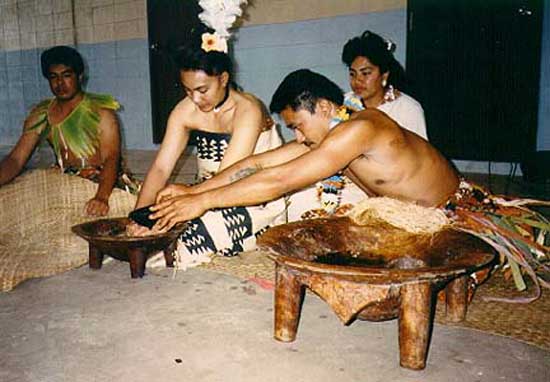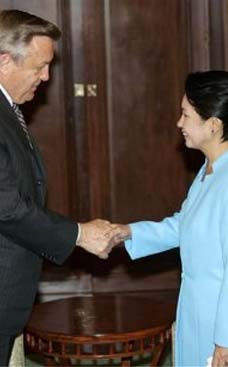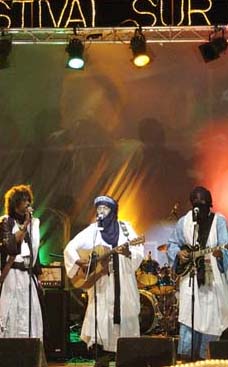
Over the last 10 years an influx of Chinese has quickly established themselves from a nearly nonexistent population to a prominent business force. The Chinese community happened to be highly commerce-minded and through shrewd business ventures, became identified in Tonga as the place to shop due to their greater variety of stock and inexpensive prices. The Chinese businesses are an easy target because of many factors. Not only do the Chinese make up a small 1% of the total population in Tonga, but their businesses are also dispersed all over Tonga. The Chinese are also noticeably smaller in physical stature than Tongans and do not understand English. Contrary to popular belief, the Chinese are not highly proficient in the Tongan language. The Chinese have had no formal training in the language so their vocabulary is mainly limited to identifying the items in a store. Beyond their store’s door, they feel helpless. Tongans started to realize that Tonga was no longer Tongan; foreign businesses permeated even daily life and they were constantly reminded of the fact whenever they would go to the local store to find that it was no longer owned by a relative, but instead by an unfamiliar face from an unfamiliar land. People became furious. They asked themselves how did this happen to their country?
Peace Corps Volunteer William writes: A Chinese-American Peace Corps Volunteer's Perspective on Tonga
My report: A Chinese-American Volunteer's Perspective on Tonga
A Chinese-American Volunteer’s perspective of Tonga
Peace Corps Volunteer William Liu Group 71
Race:
The coined expression of ignorance, “Have you been on an island these last few years??” aptly applies to specific Tongans when it comes to their knowledge of different cultures. In no fault of their own, the Tongans who have never left their country have little grasp of different races because they were born and raised on an island. Their perception comes from rare encounters with tourists, though their main understanding comes from the perpetual stereotypes that movies and television portray.
The ignorance of different cultures and races leads to the logical fallacy of false association. The Tongans that are unaware of different cultures falsely associate a person’s country of origin with their physical features.
Most of the Asians that Tongans meet in their country are either Chinese or Japanese, characterized by the physical characteristics of squinted eyes predominate in Asian societies. Thus, from the island perspective, if you have squinty eyes, you’re either Chinese or Japanese. Koreans, Cambodians, or any other Asian race is unheard of because their influence has not quite reached Tonga yet. Similarly, most of the Americans that Tongans meet have a lighter skin tone and are classified under the well-regarded ‘palangi’ category.
It is physical appearances that define the initial impressions of what people think about you in Tonga. Due to the overwhelming population of certain cities, you may never have a chance to give more than initial impressions. As an Asian volunteer, you have to keep that in mind everyday.
Culture:
Tonga has enjoyed foreign aid courtesy of many countries, mainly from Australia, New Zealand, Japan, China, and the United States of America. The foreign aid organizations have only supplemented Tonga’s traditional culture of ‘share everything’. Over the years however, Tongans have become slowly immersed with a contrary culture, the materialistic culture. An overwhelming number of remittances have left a few Tongans constantly yearning for more, to live in a dream life that’s realistically unattainable without a lot of work.
Coincidently, over the last 10 years an influx of Chinese has quickly established themselves from a nearly nonexistent population to a prominent business force. The Chinese community happened to be highly commerce-minded and through shrewd business ventures, became identified in Tonga as the place to shop due to their greater variety of stock and inexpensive prices.
Tongans were forced to watch as their country changed from being mainly Tongan operated to largely foreigner operated in a relatively short amount of time. Foreign businesses are not a new concept in Tonga, but it wasn’t quite as apparent until the Chinese arrived and started stores in mass. Now instead of foreigners only working at white collared jobs, the Chinese operated even at a grassroots level and started displacing local Tongan businesses.
Tongans started to realize that Tonga was no longer Tongan; foreign businesses permeated even daily life and they were constantly reminded of the fact whenever they would go to the local store to find that it was no longer owned by a relative, but instead by an unfamiliar face from an unfamiliar land. People became furious. They asked themselves how did this happen to their country?
Instead of slowly shifting away from the old culture, Tongans have been pushed to make a quick decision about the future state of affairs for their country. Some wish to retain the old Tongan lifestyle of sharing everything while others wish to adapt to the changing times and are eager to adopt more of the Western philosophies. There’s anger at the government for being unable to deal with the situation at large, that the Tonga of today is no longer the Tonga of old.
Change is coming and many of the upcoming events may be just as unforeseeable as Black Thursday, where over 80% of the capital was burnt down in an uncontainable riot. Black Thursday is more than just mere statistics or the devastation of a city. Black Thursday was the country’s primal cry for changes, a cry that has no set direction, just a hodgepodge of ideas, but nonetheless a cry that demands that action and reforms occur. As with all things, only time can tell.
Safety:
Complete security is only an illusion wherever you may be and racism is everywhere in this world. However, the current state of affairs in Tonga has called for a heightened awareness for one’s own security. During these times of change, anyone considering serving as a Peace Corps Volunteer in Tonga should be made fully aware of these security issues to make a more informed decision and come better prepared.
The Chinese businesses are an easy target because of many factors. Not only do the Chinese make up a small 1% of the total population in Tonga, but their businesses are also dispersed all over Tonga. The Chinese are also noticeably smaller in physical stature than Tongans and do not understand English. Contrary to popular belief, the Chinese are not highly proficient in the Tongan language. The Chinese have had no formal training in the language so their vocabulary is mainly limited to identifying the items in a store. Beyond their store’s door, they feel helpless.
This leaves many Chinese in a foreign land, unable to put together a complete sentence in the local language, living as far as miles from the closest person who speaks the only language they know, and sitting behind metal bars as the only protection from would-be thieves. With no one to complain to when something happens and unable to even complain given the huge language barrier, this leaves Chinese businesses as easy prey to unscrupulous individuals ready to exploit an obvious vulnerability.
So if it’s dangerous, why do the Chinese still open up stores? Unlike Tongans (who inherit their land plots from birth), foreigners do not have any means of sustaining themselves off the land because of a law that states that foreigners cannot own land in Tonga. So far foreigners have bypassed that problem because they’re either part of an aid organization that pays its volunteers a living allowance or they’re tourists that come with money. With the highest export in Tonga being Tongans themselves, the idea of people moving to live in Tonga is unheard of. Foreigners living in Tonga are unable to sustain themselves off the land so they simply need money to survive, thus they create businesses.
To remain as safe as possible as an Asian volunteer, it is necessary to integrate yourself into the community. Let people know what a Peace Corps Volunteer is, that you come from America, and what your volunteer work consists of. You need people who can vouch for your character. Before that, you need to prove your character. Bars that might be acceptable for other volunteers might be more dangerous as a minority volunteer. If people get drunk at a bar, as usually is the case, you might be the first victim to be instigated. Above all, use common sense.



















